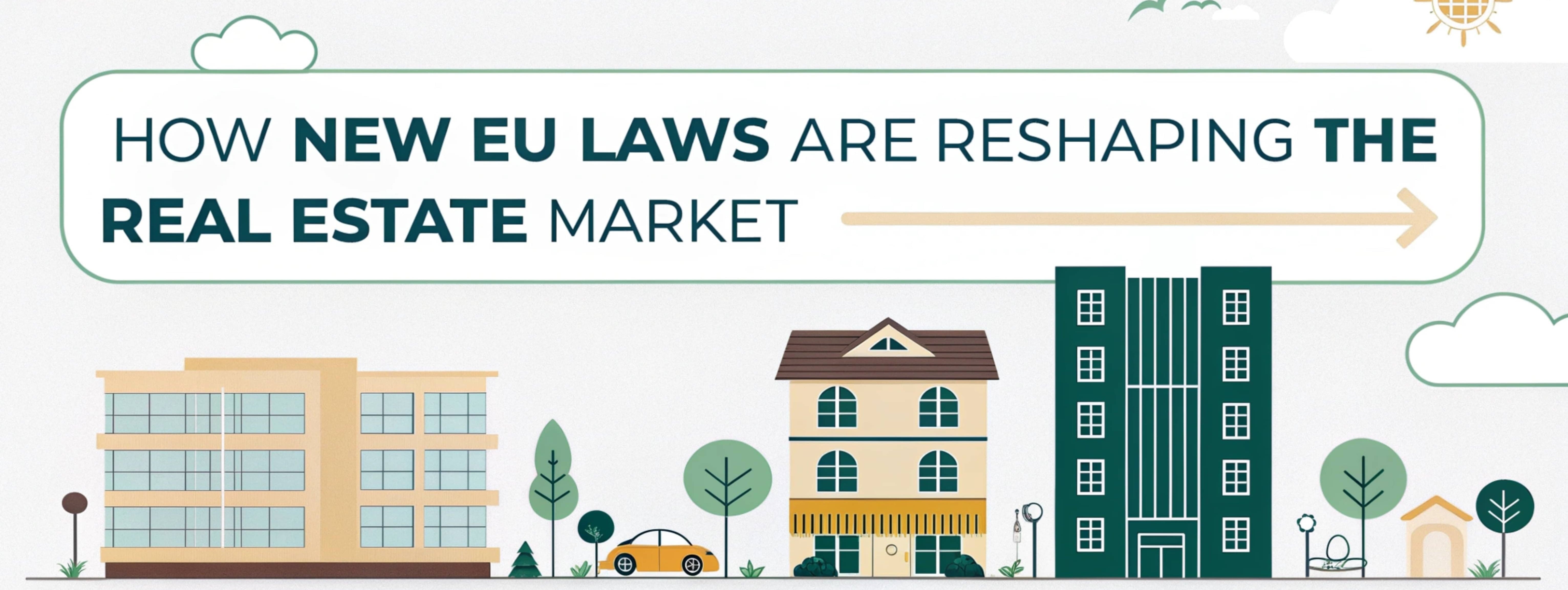A lot of energy has gone into building your luxury villa or apartment. But did you know that your building has to be energy efficient within the next five years to reduce carbon emissions? We take a closer look at how these evolving laws could affect local real estate markets.
How New EU Laws Are Reshaping the Real Estate Market

As the debate on how to tackle the climate crisis continues to hot up, one focus has been on how the construction industry can contribute to the global challenge.
The European Parliament has, in recent times, passed laws that will undoubtedly have a major impact on house owners in the coming years. Here are some important dates:
- New buildings to be emission-free by 2028.
- Residential buildings under renovation to have zero-emissions by 2032
- Homes need to be at least class E in energy performance by 2030 and D by 2033
The Impact of Energy Efficiency Regulations on Property Owners
The laws have their own impacts on property – whether they were built decades ago or last week.
New builds should have solar technologies installed by 2028. However, if a property fails to meet its energy performance standards – based on an A to G rating, with G the worst – it cannot be mortgaged, let alone sold.
The impact on Cyprus is that more than three-quarters of its building stock is over forty years old. The upgrades needed to comply with the new energy efficiency law could be expensive for owners to implement.
That could feed through and result in a pricier property resale market and even higher rents for tenants who demand energy efficiency laws are respected.
What that means for the future is that buyers will opt for new builds over resales as they know that the new villas and apartments comply with the latest regulations.
The flip side is that property not meeting the new energy efficiency standards will simply decline in value. And those property projects that do come forward in the next decade could be subject to higher costs as construction companies focus on making their new builds energy efficient.
Knowing that the costs could be exorbitant could also narrow the potential for new builds as constructors are unlikely to want to be exposed to high-cost projects.
Energy Performance Laws Updated: Key Changes for 2025

As of April 2024, the European Parliament passed revised laws on the Energy Performance of Buildings Directive, which aims to progressively reduce greenhouse gas (GHG) emissions and energy consumption in the EU building sector.
All new buildings should be zero-emission as of 2030; new buildings occupied or owned by public authorities should be zero-emission as of 2028.
When calculating the emissions, member states, including Cyprus, will have to take into account the life-cycle global warming potential of a building, including the production and disposal of the construction products used to build it.
For residential buildings, nations will have to implement measures to ensure a reduction in the average primary energy use of at least 16% by 2030, and at least 20 to 22% by 2035.
According to the new directive, member states will have to renovate the 16% worst-performing non-residential buildings by 2030 and, by 2033, the worst-performing 26% through minimum energy performance requirements.
Member states have to outline how they will adopt measures to decarbonise heating systems, with a view to phasing out fossil fuels in heating and cooling by 2040. Subsidizing stand-alone fossil fuel boilers will be prohibited as of 2025.
Conclusion
Adoptingenergy-efficient initiatives will impact a property’s value, but that can only be positive. These opportunities, such as adopting solar, will mean properties gain value over the long term.
Although new build costs will come in higher, the long-term view is that energy costs for power, water, and maintenance for the owner will always be on a downward curve. The ultimate aim is to minimize carbon emissions where possible and make properties more sustainable.






